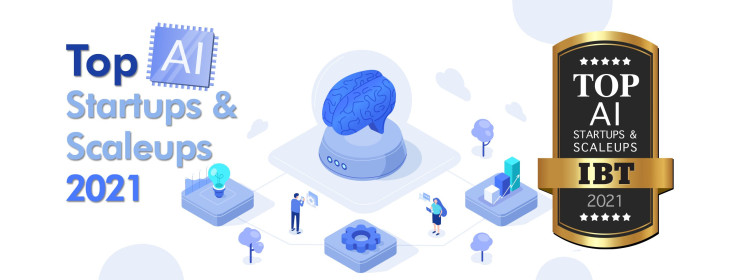This is the age of Artificial Intelligence. The technology is fast becoming ubiquitous, being employed everywhere from driverless vehicles to making suggestions to online shoppers what they should buy next, to facial recognition software to trawling research for hidden knowledge.
The benefits of AI are already impacting people's lives in more ways than it was ever imagined. It is estimated that one of 10 enterprises are already using more than 10 AI applications to efficiently solve complex real-world problems.
Within the emerging technology space — AI, robotics, cybersecurity, blockchain, internet of things (IoT), virtual reality (VR) and augmented reality (AR) — AI startups and scaleups have seen "hockey stick-style growth since 2016."
International Business Times' list of top Artificial Intelligence startups comes against this backdrop, and is a logical next step to our much-acclaimed lists on Top Fintech Startups and Top EMBA programs. Like those lists, the list of top AI startups is part of our commitment to bring to our readers the information and visibility they require to understand this fast-evolving and growing area of technology and the rising stars in its firmament.
As with our Fintech startups list, our partner StartUs Insights put together this list to help our readers cut through the noise. Our focus was to ensure that only those startups and scaleups that work in artificial intelligence in a meaningful way and demonstrate promise and business potential made the cut. This was no mean task: Artificial intelligence is a crowded field, and the number of companies that claim to be making AI solutions runs into several thousands. StartUs had to find the ones that build real-problem-solving applied AI solutions, and then find the leaders among them.
Ranking startups and scaleups is easier said than done — because of the disparate technological problems they seek to address and solve. In our list are startups that develop artificial intelligence systems using powerful deep learning algorithms and supercomputers for drug discovery; one that develops emotion recognition technology that senses and analyzes facial expressions and emotion, a photo AI platform that generates auto repair estimates instantly, a service platform that connects consumers with their banks via micro conversation, to describe a few.
IBT's list honors the top AI players, but let's remind you again that this is not a ranked list for the reasons mentioned above.
It is important to note that American startups make up two-thirds of the IBT list. That is a reflection of the reality on the ground despite the headlines that warn of China's quest for AI dominance. Most AI startups are — still — in the U.S. although the U.S. and China continue to be leaders in this race for AI. The most promising AI startups are U.S.-based ones working in health care, retail and transportation, according to a Bloomberg report last year.
Additionally, a report last November said the U.S. attracted 56%, or more than half, of the total investments made in artificial intelligence between 2015 and 2019 worldover.
American startups and companies working on AI pulled in nearly two-thirds of the disclosed investment globally in 2019 alone: $25.2 billion in disclosed value (64% of the global total) across 1,412 transactions, another report said
A key point here: the pandemic has caused companies to accelerate their AI strategies. Organizations are investing in AI to expedite remote work, cut costs and enhance user experience.
Our list is a reflection of the realities of this real world in both its timing and content.


